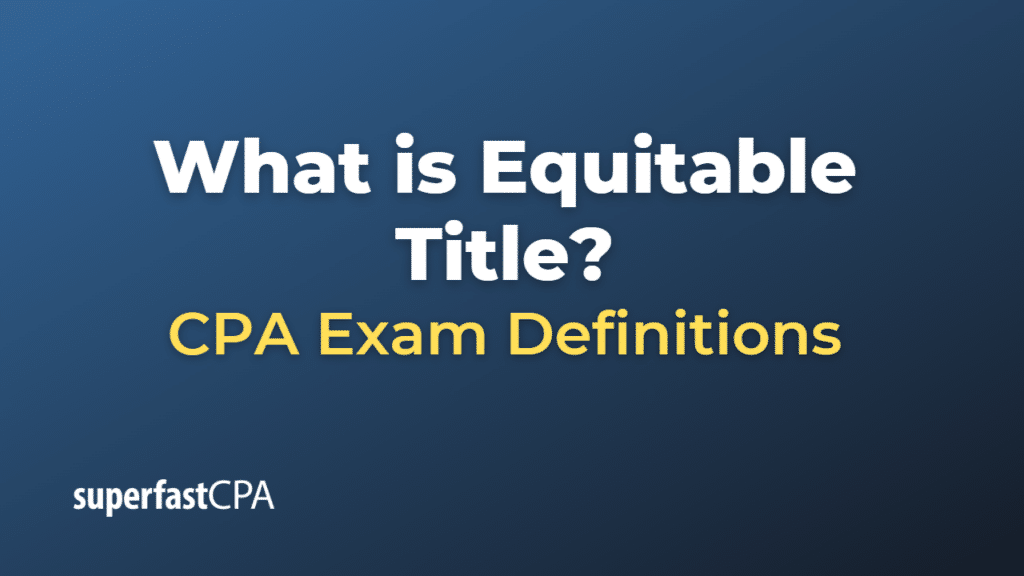Equitable Title
Equitable title is a legal term that refers to a person’s right to obtain full ownership of a property or asset. It is often used in real estate transactions, where a buyer signs a contract to purchase a property but has not yet completed the transaction and officially received the legal title (also known as the “legal title”). Despite not having the legal title, the buyer holds the equitable title to the property.
The concept of equitable title represents the benefits, profits, or use rights associated with owning an asset, even if the full legal ownership is not yet achieved.
For example, in a real estate sale, once the purchase agreement is signed by both the buyer and the seller, the buyer usually has equitable title. This means the buyer has the right to benefit from the property (e.g., by selling it to another party, or securing a mortgage on it) and generally has the right to eventually receive legal title, assuming they fulfill all requirements of the contract (e.g., paying the agreed purchase price).
The term “equitable title” is part of a larger legal system known as equity, which seeks to apply principles of fairness and justice when traditional legal remedies might be inadequate.
Example of Equitable Title
Let’s consider an example in the context of real estate.
Imagine that you’ve found a house you want to buy. You and the seller agree on a price and sign a purchase agreement. At this point, even though the legal title of the house is still in the seller’s name (meaning, legally, the seller still owns the house), you as the buyer have what is known as “equitable title.”
This equitable title gives you a beneficial interest in the property. It means you have the right to eventually obtain full ownership (legal title) of the property, assuming you fulfill your part of the contract, which is typically paying the agreed-upon purchase price.
Furthermore, equitable title allows you certain rights, like the right to sell your equitable interest (assuming your contract doesn’t forbid it), or to obtain financing using the property as collateral.
However, the closing process is yet to take place where you will pay the seller, and the seller transfers the legal title to you, officially making you the homeowner. At the point of closing, your equitable title becomes a full legal title.
Remember, this is a simplified example and actual real estate transactions can be quite complex, involving multiple stages, professionals like real estate agents and attorneys, inspections, negotiations, and legal paperwork.













